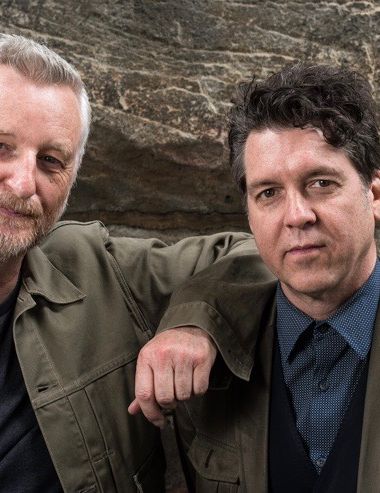Billy Bragg is Britain’s ultimate musical activist. The political singer-songwriter has penned protest songs, punk songs, folk songs, and plenty more for nigh on 40 years, and has never been afraid to speak his mind. It’s the beauty of what he’s all about; if only more of today’s artists could be encouraged to wear their musical hearts as proudly as he does on their sleeves. Back in March, Bragg embarked on a new project. He boarded an LA-bound train at Chicago’s Union Station with long-time pal and producer,Joe Henry, in a bid to reconnect with the culture of American railroad travel, and the music it inspired. During their 2,728-mile journey, which lasted four days, the pair recorded a dozen classic railroad songs, which culminated in a rather magical album, Shine A Light, which was released in September. Headliner is extremely intrigued...
“I’ve known Joe Henry since the 1980s, and we’ve been good pals since; he produced my last album in his basement, and that sparked me on to trying to do a project where we could do a gig together; I know he has made his name as a producer, but he really makes brilliant records, too,” opens Bragg. He’s right, Henry’s voice is really something to behold. I ask Bragg to break down the Shine A Light project for me. “It was exciting; every time the train stopped in a major city for more than 10 minutes, we had to get off, do a track’s recording, and keep an eye on the train so we didn’t get left behind.”
The album was recorded digitally, using two pairs of high-end mics, and Henry brought his studio engineer with him, Ryan Freeland, who Bragg said did a great job by just walking in, and sussing out where the best spot would be to work.
“We would always try to get into the waiting rooms of the railway stations, as they were built over 100 years ago, so they had nice tiled walls, and great acoustics; but sometimes it was simply trying to find any spot where we could set up and play,” he recalls, with a smile. “Occasionally, we could get in there and have a couple of run throughs, but then at other times it wasn’t possible to get into the body of the railway station, as the platform was so far away, and we’d have been out of sight [of the train].”
